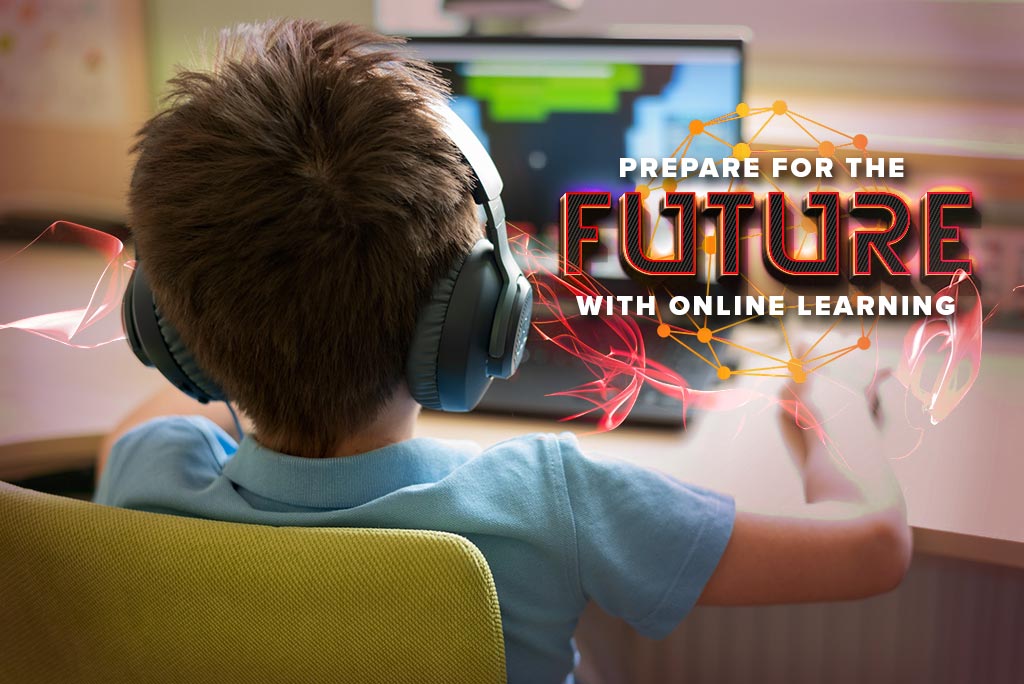 Since the onset of the COVID-19 pandemic, online learning has definitively moved to the forefront of education. Course enrollments have steadily grown for years, even before the pandemic. The 2019-2020 semester course enrollments for Virtual Learning Leadership Alliance members were over a half million. “Many students who would never have seen themselves as online students realized the model was working better for them,” says Joseph South, chief learning officer for ISTE, an organization that advocates for technology in education. “A fall 2020 RAND survey of district leaders found that 1 in 5 schools have already adopted or plan to adopt virtual schooling after the pandemic.” Virtual charter schools have existed for years, but individual districts are starting to dabble in the virtual schooling world.
Since the onset of the COVID-19 pandemic, online learning has definitively moved to the forefront of education. Course enrollments have steadily grown for years, even before the pandemic. The 2019-2020 semester course enrollments for Virtual Learning Leadership Alliance members were over a half million. “Many students who would never have seen themselves as online students realized the model was working better for them,” says Joseph South, chief learning officer for ISTE, an organization that advocates for technology in education. “A fall 2020 RAND survey of district leaders found that 1 in 5 schools have already adopted or plan to adopt virtual schooling after the pandemic.” Virtual charter schools have existed for years, but individual districts are starting to dabble in the virtual schooling world.
Virtual settings are not only implemented in schools but the workplace as well. For anyone considering online learning, let’s look at eight of the many ways virtual learning helps better prepare students for the future.
- Responsibility
Online courses require the learner to take control of their own learning. With 24/7 access to course content, today’s students have flexibility in determining when, where and how much time is needed to complete their course work. Having responsibilities in high school offers students a realistic and constructive introduction to college and vocational school.
- Time management
Online learning allows students to work at their own pace. They aren’t required to attend class at the same time each week but at a time that works best for them. Students learn to effectively manage their studies, community events and extracurricular activities which better prepares them for the workforce. Time is money, and employers look for employees who are detail-oriented and can complete a task on time.
- Communication practice
Email is a vital form of communication. Online students learn how to properly draft and format a variety of communications as part of their daily interaction with teachers and other classmates. In addition, scholars learn effective communication through video and web conferencing and online chat services. A strong array of communication skills is critical when delivering information quickly, accurately and professionally.
- Independence
Online students understand independence and align their goals based on their performance and not their peers. The learners are organized and confident, familiar with technologies, and accustomed to meeting deadlines.
- Computer skills
With online learning, students utilize computers and other technologies to create, communicate, explore and research as part of the learning process. This generates computer knowledge and skills. In addition to a robust online course schedule, students can take online computer courses such as programming, cybersecurity and social media for functional knowledge of technology that will benefit them in the future.
- Study skills
Faced with a nontraditional setting, students must learn which study techniques work best for them. With online learning, students have the option to take courses specifically designed to strengthen study skills and strategies to increase performance.
- Openness to new ideas
As a college-bound teen, students have an array of subjects that they may wish to check out. Engaging in disciplinary studies such as psychology, hospitality and tourism, and world languages provides the opportunity for students to explore different ideas as they embark on careers, meet new people and prepare for the modern workforce.
- Collaboration
Collaboration between students and teachers enables all students, even the quieter ones, to have a voice. This preparation highlights soft skills that are necessary at the university level. Teachers build rapport with students through a range of communication channels, providing attention and care into each student’s feedback. The collaboration between students and teachers is essential in preparing students for college and the workforce because students are learning how to work with adults in a professional manner.
With these benefits and more, online learning allows students to discover their unique learning styles, a new independence and soft skills. These experiences help propel them as they embark on their futures.

